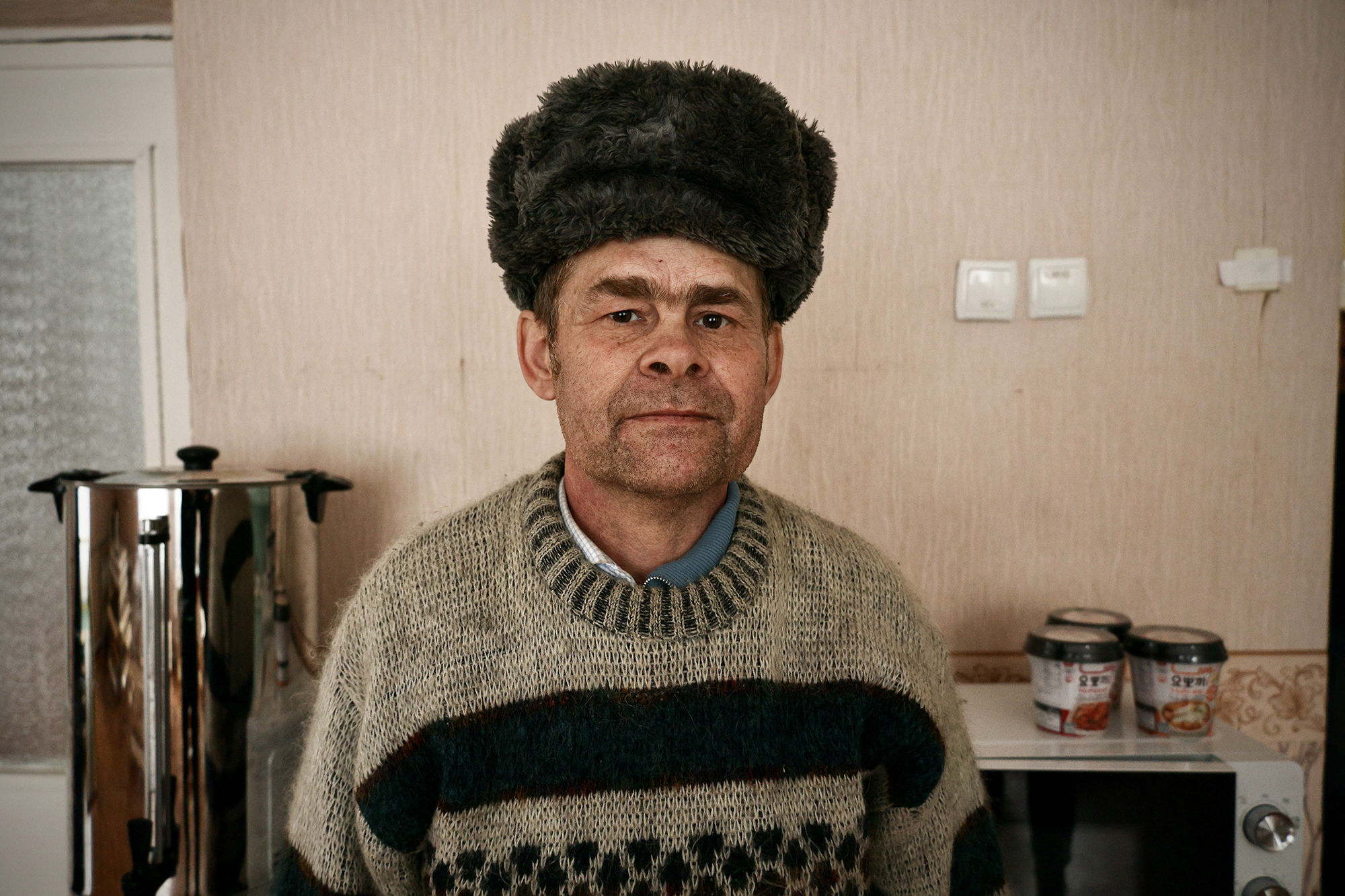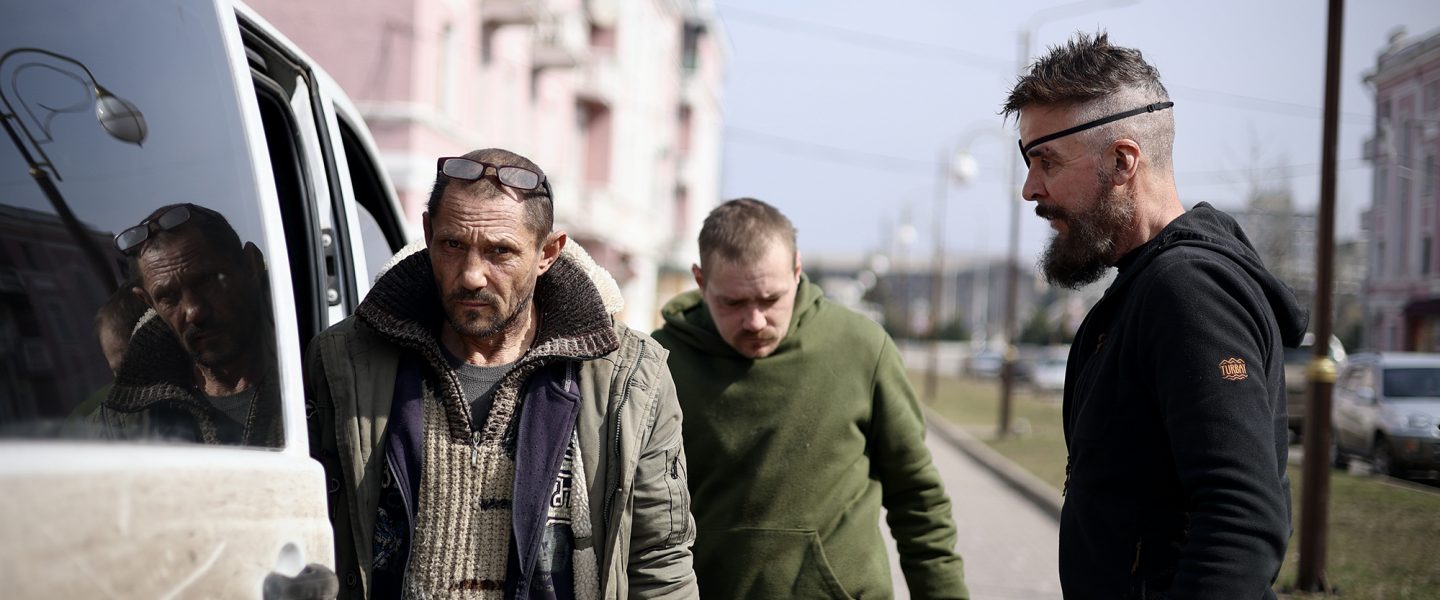How Many People Will Be Left in Chasiv Yar?
As Russians advance around Bakhmut, Ukrainian civilians hunker down or flee.
|
Listen To This Story
|
CHASIV YAR, Ukraine — Neighbors in Chasiv Yar chatted Friday afternoon to the accompaniment of machine gun fire and booming artillery.
“We live here under fire,” said one of the residents, Luba.
On the outskirts of town, the sound of battle was fierce. In recent weeks, Russian military forces have drawn closer to Chasiv Yar as they continue to encircle Bakhmut, a neighboring town a few miles east that has been the epicenter of fighting for months.
Oleksandr Musiienko, head of the Kyiv-based think tank Center for Military and Legal Studies, predicted during a phone interview on Saturday that the Russian advances are the culmination of an offensive that is losing momentum due to heavy Russian military losses. Still, the gains around Bakhmut have placed Chasiv Yar and other nearby towns and cities under heavier fire.
As fighting raged on the outskirts of Chasiv Yar on Friday afternoon, Luba talked with her neighbor Oleksiy.
“It’s getting on our nerves, of course, very much,” Oleksiy said about the noise.
“Especially in the night,” Luba added. “A lot of attacks.”

Down the road, much of Chasiv Yar was damaged and destroyed. Mud and debris covered pothole-lined roads, and homes and residential buildings sat damaged and vacant or occupied by Ukrainian troops.
Oleksiy and Luba said they have lived without electricity for a month, and without running water and gas for the last six weeks. With shops closed, both said they are largely reliant on humanitarian aid from the local government and nongovernmental organizations for survival.
“Humanitarian help helps a lot,” said Oleksiy. “We are thankful for that, that we are not forgotten.”
While attacks on Chasiv Yar have recently intensified, the town has been under fire for months. Even before recent Russian advances, many residents had already fled. But others, like Luba and Oleksiy, have chosen to stay.

“We don’t have anywhere to go,” said Luba. “To go you have to have money.”
Local officials have organized evacuations for some Chasiv Yar residents. To Oleksiy, however, the prospect of leaving creates new challenges that seem insurmountable.
“The only problem is that there is no job there,” he said, referring to any other place in Ukraine where he could be evacuated. “We are working people. We were working our whole life. We don’t want to live for free. Maybe you can get some payment there. But what, it’s 2,000 hryvnias ($54) per person. It’s not much.”
“You have to pay rent,” Luba added. “You have to pay utility services. And you don’t have money to live on. Here is our home, but it’s scary.”
Residents of Chasiv Yar who do decide to leave are passing through places like Kramatorsk, the regional capital of the Donetsk region.
On Wednesday, David Young, a British volunteer rescue worker, brought several evacuees from Chasiv Yar (and one man who bicycled to the town from Bakhmut) to a humanitarian center at a church near the Kramatorsk train station.
”Everyone’s kind of on edge,” Young said during an interview after his second trip into the town that day. “The people that came out immediately this morning, they literally lost their houses. One of them was on the fifth floor, and the building was reduced to four floors. So their apartment didn’t exist. The rest of them, they’re all burnt out. They’re all homeless.”
One of the people Young evacuated was Maryna Machula, a 53-year-old lifelong resident of Chasiv Yar who had spent the last several months living in a basement with family members and neighbors.
 “We didn’t want to leave, we wanted to stay home,” Maryna said. “At home it’s better, but we don’t have a home now.”
“We didn’t want to leave, we wanted to stay home,” Maryna said. “At home it’s better, but we don’t have a home now.”
In the previous two days, she said, the shelling had intensified.
“We thought it will go away,” Maryna said about the fighting, “but it didn’t happen. We didn’t have the nerves for it anymore.”
She expressed a bit of embarrassment about her clothes being dirty as she and others unloaded their belongings from Young’s vehicle.
“We are nicely dressed,” she joked. “We just got out of the basement.”
After enduring months of frigid weather, shelling, and little sunlight, Maryna and her son, Artem, were overwhelmed by the bright sun and unusual quiet over Kramatorsk.
“We don’t know if we should smile or cry,” Artem said.
Over the next few hours, they waited for transportation to a safer part of Ukraine, further west. They had somewhere to go. But other evacuees, like Sergei, his wife, and his son, Artur, did not.
“We thought everything would be fine,” said Sergei. “We wanted to stay home and not to be homeless like right now. Now we don’t have a home, and we don’t know where to go and to whom and with what.”
All that they had were several bags of clothes — and Musia, Artur’s cat.
“If we go somewhere away from here, we’ll probably leave her here,” Artur said about Musia. “She’s a home cat. She wouldn’t survive there. Here, maybe, some people could help her, would feed her.”
Artur had tears in his eyes as he talked about Musia.
“She sleeps with him,” Sergei said. “He fed her and raised her.”

South of Kramatorsk, evacuees are also passing through the town of Kostyantynivka. Like Kramatorsk, this town has also come under more frequent attacks in recent weeks.
In the pre-dawn hours Friday, Russian S-300 rockets hit the town, destroying a humanitarian center housing evacuees and killing five people.
In a Friday afternoon battle report, Russia’s Defense Ministry made no mention of the humanitarian center. The report’s only reference to Kostyantynivka was that a Ukrainian ammunition depot had been destroyed there.
Musiienko accused Russia of deliberately targeting civilians with attacks like the one on Kostyantynivka.
“I don’t see any military, any war goals in this,” he said. “It’s just to terrorize and demoralize people.”

At another humanitarian center in Kostyantynivka, Oleksii Stepanov was preparing tea and snacks on Friday afternoon. He and his 70-year-old mother were waiting to travel to Kamianske, where they had found a new home and Stepanov hoped to find a new job.
Six days prior, Stepanov’s home in Bakhmut had been destroyed by mortar fire. After the attack, he and his mother made their way to an evacuation point in Bakhmut. From there, Ukrainian troops took them to Kostyantynivka.
“I moved to Bakhmut 20 years ago,” Stepanov said. “I invested all my money in it. I was left without a house, without anything. And now I will have to start again.”
Despite losing everything, Stepanov was upbeat. As we finished speaking, he said that it was his birthday.
“I did not think I would survive until 55,” Stepanov said. “But it happened.”

